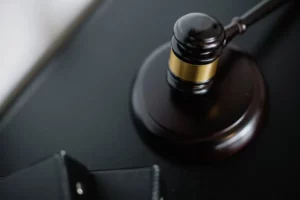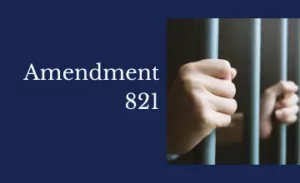Also called the motion to vacate sentence, the 2255 petition for writ of habeas corpus can be an application for a writ of habeas corpus.
Essentially, they are all the same, with only a slight difference.
The 2255 petition only applies to those who have been convicted in a federal court and now in federal custody.
It doesn’t apply to those convicted in a state court or convicted in the state of Texas and in prison.
However, it can apply if you’ve been in Texas, but you were charged with a federal crime or in any state in the United States or the territories, and you have been charged with a federal crime convicted and are now in federal prison.
In the petition to vacate, you’re essentially alleging the same thing you would in a state writ.
You’re alleging ineffective assistance of counsel, prosecutorial misconduct, Brady material exculpatory evidence, and due process violations.
You’re only going to go down the road of the things that could be remedied through:
- Ineffective assistance of counsel
- Prosecutorial misconduct
- Brady material,
- Due process violations
- An involuntary plea.
These are the most common grounds of the 2255 petition.
Process of a 2255 Petition
The process is similar.
- You file a petition in the district court
- The District Court gives the government the opportunity to respond,
- The government files a response.
And then if you have alleged grounds that could entitle you to relief, the court will set the matter for a hearing or request affidavits from trial counsel.
And if it’s ineffective assistance of counsel claim or from prosecutors, the court will have a hearing and decide your case.
This is different from the process of the state court, where the trial court makes findings of facts and conclusions of law and then forwards it onto the court of Criminal Appeals.
In federal court, the Federal District Judge or magistrate judge in that particular case of a writ will make the decision in your case.
He’ll analyze the facts presented, apply the law, and decide whether or not you’re entitled to relief.
And his decision is final.
There’s no court that it has to be forwarded to for a final decision.
If the court sets you free or gives you a new trial, then you’re great.
Going forward, you can appeal to the Fifth Circuit when a district court makes a decision, and you’re unsatisfied with it.
You can appeal it to the Fifth Circuit Court of Appeals, and then ultimately to the United States Supreme Court.
That’s how the 2255 petitions work, in a nutshell.
About The Attorney
 Jacob Blizzard is board certified in both criminal law and criminal appellate law.
He regularly practices in the areas of state and federal criminal defense, criminal appeals, post conviction writs of habeas corpus.
In Texas, there are more than 100,000 attorneys licensed to practice, but only 7,450 are board certified.
In the entire State of Texas, as of the 2019 certification year, there were only 87 attorneys board certified in both criminal law and criminal appellate law, making Mr. Blizzard one of 0.087% of attorneys in Texas to hold both of those certifications.
Jacob Blizzard is board certified in both criminal law and criminal appellate law.
He regularly practices in the areas of state and federal criminal defense, criminal appeals, post conviction writs of habeas corpus.
In Texas, there are more than 100,000 attorneys licensed to practice, but only 7,450 are board certified.
In the entire State of Texas, as of the 2019 certification year, there were only 87 attorneys board certified in both criminal law and criminal appellate law, making Mr. Blizzard one of 0.087% of attorneys in Texas to hold both of those certifications.



